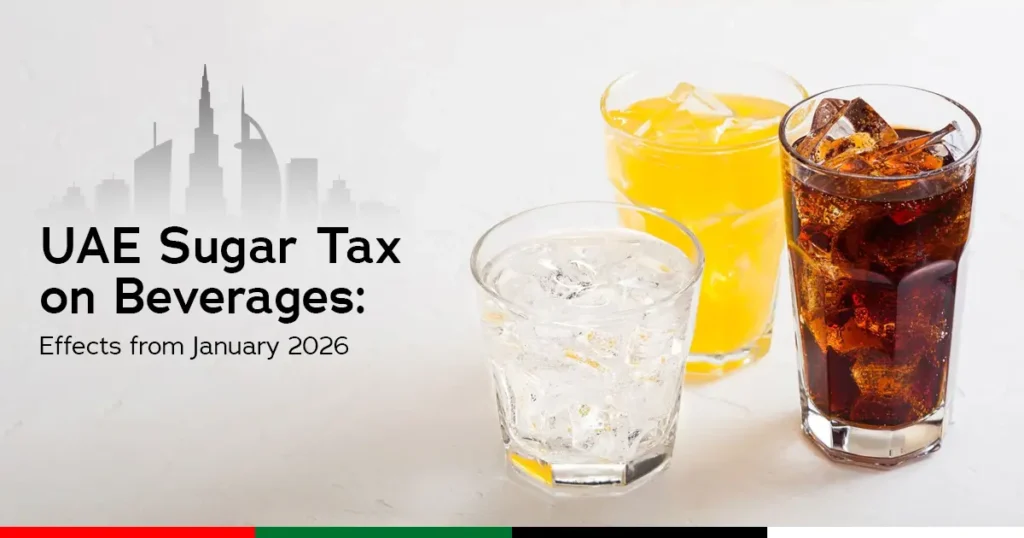It seems that the UAE government is now taking decisive action to fight against obesity, diabetes, and chronic diseases with its UAE sugar tax 2026 initiative.
The news of the UAE Federal Tax Authority (FTA) introducing “Sugar Tax on Beverages” has resurfaced on the internet lately. It states that the UAE government is planning to regulate sugar usage across the country with its new selective tax system on sugar-sweetened beverages (SSBs).
The government of UAE is planning to impose this regulation in early 2026, which is assumed to be a bold move to encourage consumers to make healthier choices. Currently, all the sugar-sweetened beverages will pay 50% flat excise tax, regardless of the amount of sugar it contains.
But, as the laws get imposed in 2026 — the flat rate of 50% will be gone. Instead, the tax will be volumetric or tiered, based on the content of sugar per 100 ml. In short, this law will impose more tax on sugary beverages if they contain more sugar.
The UAE government has made this decision in a joint manner with the Ministry of Finance and Federal Tax Authority. And, the main purpose of this decision is to align the tax policy with better health outcomes.
View this post on Instagram
The Impact Of UAE Sugar Tax on Beverages
The decision was originally announced in July 2025, and the government has given some time to the stakeholders in the UAE, including the producers, retailers, and importers to adapt to the upcoming regulations. The whole point of this regulation is to enforce manufacturers to modify the formulation of the products and encourage healthy eating habits amongst the consumer.
There are plans to hold awareness campaigns which will help the consumers across the country and the industry as well to not get blindsided.
Why Is This Regulation Important?
There has been a hike in the consumption of sugary drinks across the world, particularly in the United States and the Gulf countries.
According to sources, the sugar consumption per capita in 2021 has been 12.8 kg. But, the older reports suggested that the per capita consumption was over 200 kgs per year.
The recent trends show that there is still a demand for sugar and sugar-sweetened beverages which is influenced by the growth in population as the potential shift away from the artificial sweeteners.
Renowned health experts and nutritionists in Dubai have hailed this decision, calling it not just “a policy about taxes — but a strategic public health reform.”
Sugary drinks are one of the leading causes behind obesity, type 2 diabetes, heart diseases, kidney stones, stroke, fatty liver disease, and tooth decay.
Consumers who drink these low-nutrient beverages may suffer from excessive weight gain as these beverages are essentially empty calories. It also spikes the sugar levels, which if is sudden, can lead to severe health issues.
Hopefully, this new regulation will educate people and help them make healthier choices. The main aim is to make the high-sugar drinks pricier and lower the price of healthier foods and beverages.

